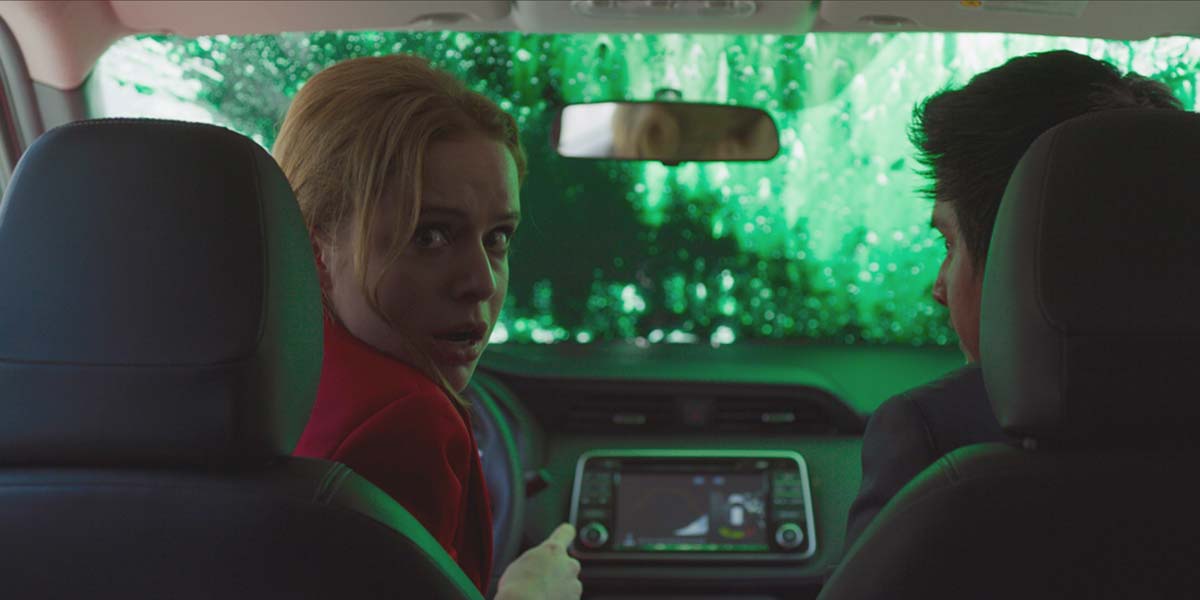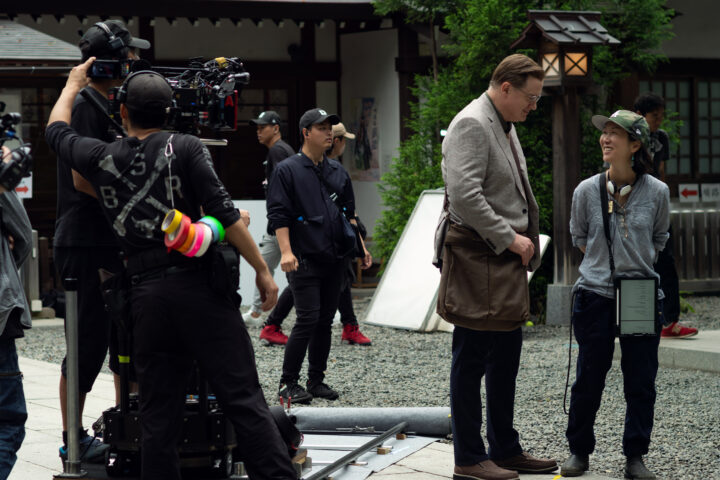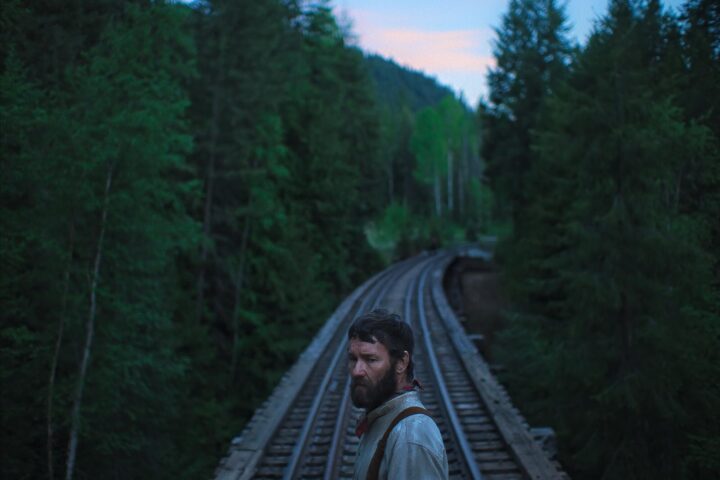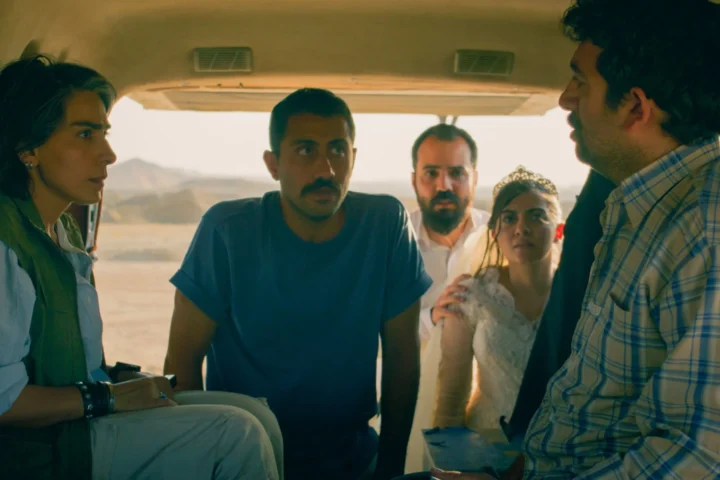Michel Franco’s sociopolitical nightmare New Order edges toward an uncomfortable, close-to-reality plausibility where social hierarchies erode amidst a working-class revolt and descent into barbarism. The French-Mexican production is a visually arresting thriller that is cruel, crude and pointed – harrowing and intriguing, undone by thinly conceived characters that are but chess pieces in a cautionary nightmare. The picture won the big prize at last year’s Venice Film Festival, and likely for its audacity rather than storytelling. It’s been called “dystopian” in some corners, but “warning” might be more accurate in its radical depiction of what happens when democracy falls.
The picture’s opening third is its strongest, at least narratively, as we meet Mexico City’s leisure class at an upscale, Polanco wedding party for the daughter of a wealthy and powerful Mexican magnate. At this locked-down affair on the terrace of a mansion protected by a high stone wall and a security battalion to ward off a rising underclass revolt, we meet posh bride-to-be Marianne (Naian Gonzalez Norvind).
Intercepting wedding gifts and patiently awaiting the delayed arrival of the justice-of-the-peace, Marianne and fiance Alan (Dario Yazbek Bernal) fraternize with Marianne’s brother, Daniel (Diego Boneta), a vision of style and success, and mother Rebeca (Lisa Owen), nervous that the increasingly violent uprising might wreak havoc on the nuptials, signaled by the intrusion of green paint gushing from the home’s faucet.
A beautifully sustained early sequence finds aged husband of an ailing former employee intruding on the festivities to reluctantly request a large sum of money for his wife’s heart surgery (the protests have overrun the hospital and alternative care is expensive). His request ensnares Rebeca, Marianne and Daniel – Rebeca is politely helpful, Daniel dismissively put out and Marianne compassionately concerned – fascinating reactions to charity.
The camera, gliding on a Steadicam for sustained tracking shots, moves in and around the wedding party, from small talk on the terrace to inside the matriarch’s bedroom, where the family safe is under lock and key, to the kitchen’s culinary preparations. The party itself, with its upstairs/downstairs participants, suggests a microcosm of the tensions outside.
On the sidelines are mother and son duo Marta (Monica del Carmen) and Cristian (Fernando Cuautle), longtime loyal staff. At Marianne’s request, Cristian agrees to drive her to the stricken woman’s home – and at that moment, hell breaks loose, and the tony manor is invaded to the tune of brutal deaths and vandalism.
In artfully composed scenes of devastation set in some of Mexico City’s renowned locations, here drenched in buckets of green paint, red blood and all manner of lawlessness, Franco’s point is clear – protests have turned to violent anarchy to mass destruction, looting and rioting; a descent into chaos. Deep within this war zone, Marianne is kidnapped by armed officers and thrown into a makeshift prison of humiliation and dehumanization, presumably for one-percenters. It only gets worse from there – corruption, ransoms, debauchery, power games. Time passes and Marianne’s family attempts to heal from the wedding party slaughter. On the other hand, she may never get out.
Certainly, much of this is watchable and involving, but the movie is ultimately an exercise in futility if one searches for compelling people in the melee. Parasite, this isn’t, that picture’s vividly drawn class divide writ large through the (mis)fortunes of an enterprising underclass family, both a personal and symbolic triumph of upstairs-downstairs socioeconomic unrest, nowhere to be found. By contrast, New Order offers nary a dimensional human; perhaps Franco’s point is that people are dehumanized during a barbaric revolution – stripped to nothing, equalized, marginalized, terrorized and controlled. How’s that for a metaphor of the exploited working class?
In choosing to tell his story from the point of view of (and ask empathy for) the tony upper class, Franco provocatively skirts political correctness by suggesting that the underclass, historically victimized and here concerned with leveling the playing field and taking back their due, is primarily made up of darker-skinned, savage heathens who gleefully commit crimes against humanity – rape, murder, degradations – that would make Pasolini proud (in fact, the film’s production company, Teorema, bears the name of one of the doomed director’s most esoteric films).
There is a way into this story that would have been more engaging, which might be to tell it from the point of view of an idealistic protestor who joins a rebellion that morphs into atrocities that betray the movement’s initial ideologies. That would make the film’s shock ending – a coup d’état military takeover of the government and state that drops the hammer on everyone – much more powerful. This, of course, has been a reality in countries like Chile and Argentina, and the picture’s final moments chillingly illustrate how quickly a democracy can destabilize into a police state, all classes ultimately subjugated.
It certainly is not a stretch to conceive of such in an America where, on the verge of Chicago’s Covid-19 lockdowns last year, an unsettling and ultimately false viral video of armored military trucks “en route to Chicago” made the social media rounds, forcing many into high anxiety, doors locked, contemplating if the U.S. military could, in a moment of cultural panic over a virus, be politically mobilized against its citizens. Conceding that this may seem foolish in retrospect, 2020’s incendiary political climate and near erosion of democracy kept many awake at night.
New Order is cold machine of a movie with intriguing ideas about the tipping point of democracy and civility. It succeeds on that order, but it is a film of ideas – not humans.
2 stars.



